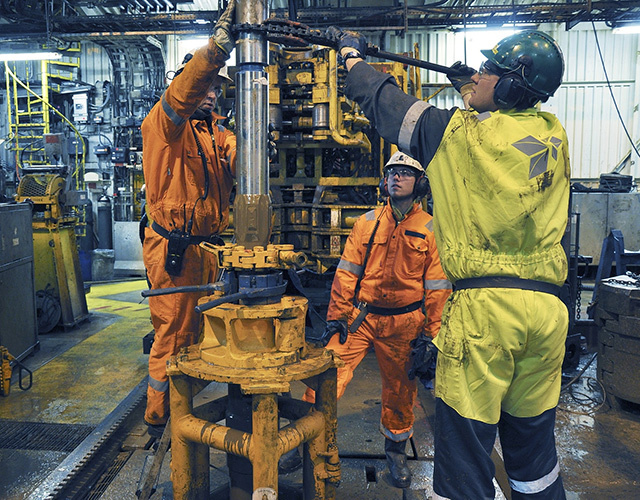
A tax hike on Norway’s oil and gas sector will likely lead to only a modest slowdown in activity in a overheating sector grappling with cost overruns and delays, industry figures have said.
Norway, the world’s seventh-biggest oil exporter, announced on Sunday it would lower the amount energy firms can write down on their investments to 22 % of their investment costs from the special energy tax – down from a previously permitted 30%.
The measure is part of a package of tax changes by the Norweigan government to boost the competitiveness of non-oil industries, struggling with low demand in Europe, while the energy sector is booming on the back of high crude prices.
While energy firms see their tax bill rise, non-oil firms will see their corporate tax rate cut by 1% to 27%.
Oil firms have been critical of the tax change, with Statoil saying the move made it less attractive to invest in marginal oilfields made commercial by high crude prices.
Overall some 10 projects could be be put on ice, according to John Olaisen, an analyst at Oslo-based ABG Sundal Collier – mostly small oilfields Statoil wanted to develop.
The state-controlled firm and Lundin Petroleum both argued that the change would make the financial conditions for working off Norway less predictable and stable – one of the main draws for investing in the high-tax country.
“It has to raise questions in people’s minds from an investment perspective (over) how predictable and attractive the Norwegian fiscal regime is, and what this means in terms of future changes,” said Ashley Heppenstall, Lundin’s chief executive.
This is the second change in conditions in less than six months Norway has announced, after a proposal to slash natural gas transport tariffs for new gas contracts in January. Pipeline investors risk big losses as a result.
But Oslo has not made changes to its tax system for oil companies in a decade, during which time crude prices have multiplied by five.
“The industry is still in a very, very generous situation. It does not have much to complain about,” said Oeystein Noreng, a professor of petroleum economics at the BI Norwegian School of Management.
“By putting a slight damp on the activity, you can hope to reduce bottlenecks, and to have the costs rising less quickly, and this could have a general advantage to the Norwegian economy.”
Suppliers are under heavy strain now so some breathing room would be welcome, he argued.
Aker Solutions warned last week that cost overruns and project delays would affect its first-quarter results, sending its share plunging over 20% in one day.
In the short-term, the news was not welcome by the market, with shares in Nordic oil companies such as Statoil , Det norske and Sweden’s Lundin Petroleum among the losers.
Shares in suppliers such as Kvaerner and Aker Solutions were also down in the wake of the news, while shares of non-oil companies responded positively to the cut in the general rate of taxation.
Recommended for you
